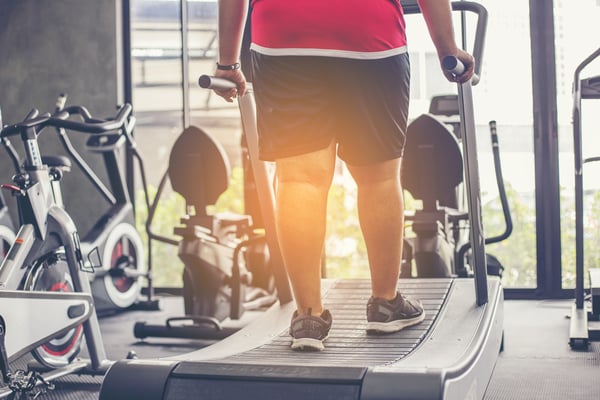Exercise is vital for your overall well being, from your physical and cardiovascular fitness to your mental health. Getting your heart pumping on a regular basis improves circulation, increases its strength and helps to prevent heart-related problems. We all know we should exercise, but knowing where to start can feel intimidating, so here is a list of things that could help you get started:
1. Get prepared mentally
The first step to getting started is obviously making a decision to start exercising. So, congratulations! You’re already on the right path. Prepare yourself mentally by thinking about how you want to take control of your life through exercise and all the benefits it will bring.
2. Identify your motivation and goals
What is your goal and the reason behind this decision? It is important to identify these reasons because they act as your motivators. Try to find a reason that’s your own and is not influenced by what other people think. If you have a goal, write it down. Your goals can simply be things like trying to be more energetic or to be able to sleep better, or more measurable, like being able to run 5km in a certain time or to reach a certain weight. Record where you’re at now so you can keep track of your progress.
3. Consider talking to a professional
Before you start, visit your doctor or set up a session with a personal trainer to discuss your goals and any concerns you have related to injuries or weak areas.
4. Choose an exercise that appeals to you
The key to effective and sustained exercise is enjoyment. So to get started, go with your gut feeling. This might depend on your experience, your friends, or your personality. Whether it is boxing, running, dancing or pilates, if you feel drawn to it, you’ll probably enjoy it more. Don't feel pressured to do what you think needs to be done. Build a rapport and once you ease into the routine you can aim for higher goals.
5. Find ways to be comfortable
Think and plan about your ideal gym attire; stretchy clothes that are not too tight, or shoes that will support you and help you to avoid injury. If you already know what kind of exercise you like, go for a pair designed specifically for that function. If you plan to try a variety of exercises, go for a pair that’s versatile. Ask the staff at your sports shop for help and advice.
6. Work it into your schedule gently
A complete overhaul of your normal routine is neither sustainable nor necessary for your exercise plan. Start by planning two workout sessions spread out within your week, so you have time to rest and get excited for the next one. Think about what’s realistic; if you can make it to a class, great, if not, there are plenty of at-home workouts online and apps with customisable plans to get you moving in your own bedroom. You can also get equipment, like yoga mats, weights or jump ropes, to assist you.

7. Once you’ve got started, incorporate something new
Either go safe with something similar, for instance, if you like yoga, give Pilates a go, if you enjoy kickboxing, try jiu jitsu. Alternatively, be bold and try something completely different like if you’re into Crossfit, try spinning. This has the benefit of working different muscles and different types of fitness like strength, cardio and flexibility. Get recommendations by talking to other fitness enthusiasts in your class or at the gym.
8. Build a community
Exercise is also a great way to socialise. Sharing an interest will help you to bond, as well as to learn more skills, and your workout buddies will also help motivate you when you’re not in the mood.
9. Think about your diet
Match your exercise plan with a diet that supports it. If you’re lifting weights, you’ll need protein to help muscle growth. If you’re doing lots of cardio, you’ll need some carbohydrates. A balanced diet full of vitamins and minerals will enhance your exercise routine and give you even more energy. As you start physically feeling the benefits of your improved diet and workouts, you’ll feel more motivated.
10. Take care of yourself
Listen to your body as you make these positive changes in your lifestyle. Make sure to warm up and cool down for every session. Protect your joints, get massages, rest when you need to and remember to celebrate your progress.
For comprehensive advice on health and insurance plans in Thailand that support your lifestyle and choices, get in touch with the experts at Luma.

.png)
.png)
